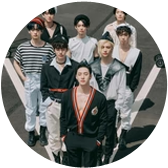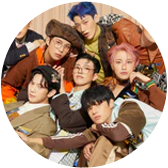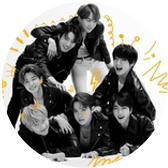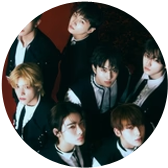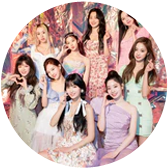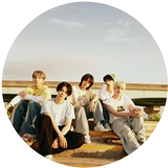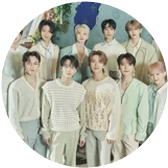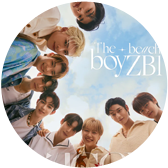5th Generation K-Pop Groups Explained: 2023 - Present
Learn about 5th Generation K-pop groups (2023-present), featuring emerging stars and innovative trends shaping the future of the K-pop industry.

K-Pop has been a global phenomenon for decades, and with each generation, the industry continues to evolve and captivate audiences worldwide. The 5th gen kpop groups, which began in 2023, is no exception. This new era brings fresh talent, innovative concepts, and a deeper connection with global fans. In this blog post, we'll explore when the 5th generation of K-Pop began, what defines it, what we can expect from this era, key agencies leading the charge, and some of the most notable debuts in this generation.
When Did the 5th Generation of K-Pop Begin?
The beginning of the 5th generation of K-Pop is often marked by industry experts and fans alike as occurring around 2023. This period signifies a distinct shift in the industry, with new trends emerging and the influence of the previous generation waning. The 4th generation, which was defined by its rapid globalization and the rise of social media-driven fan engagement, set the stage for the 5th generation to take K-Pop to even greater heights.
2023 saw the debut of several new groups that embodied the evolving landscape of K-Pop. These groups brought with them not only new sounds and styles but also a fresh approach to interacting with their audience. The transition between generations is never a clear-cut process, but by 2023, it became evident that K-Pop was entering a new phase—one that would be characterized by even more dynamic changes in music, fashion, technology, and fan culture.
What Defines the 5th Generation?
The 5th gen kpop groups is defined by a number of key characteristics that set it apart from previous generations. These include technological integration, diversity in musical styles, a stronger emphasis on individuality, and a more globalized approach to marketing and promotions.
1. Technological Integration:
The 5th generation is the most technologically advanced era of K-Pop yet. Augmented reality (AR), virtual reality (VR), and artificial intelligence (AI) have become integral parts of the K-Pop experience. Music videos and live performances now often include immersive AR and VR elements, creating an experience that goes beyond the traditional boundaries of music and performance. AI is also being used to create hyper-personalized content for fans, such as custom messages from idols and AI-generated music recommendations.
2. Diversity in Musical Styles:
While K-Pop has always been known for its diverse range of musical styles, the 5th generation takes this diversity to new heights. Genres like hyperpop, trap, and even experimental electronic music are being incorporated into K-Pop, resulting in a sound that is more eclectic and innovative than ever before. Additionally, there's a growing trend of blending traditional Korean musical elements with modern production techniques, creating a unique fusion that honors the past while pushing the boundaries of what's possible in the future.

3. Emphasis on Individuality:
The 5th generation places a stronger emphasis on individuality, both in terms of the artists themselves and the concepts they embody. While group dynamics are still important, there's a greater focus on allowing each member to shine in their own right. This is reflected in the music, choreography, and even the way groups are marketed. Solo projects and sub-units are becoming more common, giving artists the freedom to explore their personal artistic visions while still being part of a larger group.
4. Globalized Marketing and Promotions:
K-Pop has always had a global reach, but the 5th gen kpop groups is taking this to a whole new level. Agencies are now prioritizing international markets from the very beginning, with many groups debuting with multilingual songs and engaging in global tours almost immediately after their debut. Social media platforms like TikTok, Instagram, and YouTube continue to play a crucial role in promoting K-Pop globally, but there's also a growing emphasis on localizing content to cater to specific regions. This includes collaborations with international artists, appearances on foreign television shows, and even dedicated marketing campaigns for different countries.
What Can We See from This 5th Generation?
The 5th generation of K-Pop is already showing signs of being a groundbreaking era in the industry. Here are some of the trends and developments we can expect to see as this generation continues to unfold:
1. Increased Focus on Sustainability:
As the world becomes more environmentally conscious, the K-Pop industry is following suit. Many 5th generation groups are incorporating sustainability into their branding and messaging. This includes eco-friendly merchandise, digital albums instead of physical ones, and even environmentally-themed concepts in their music videos and performances. Fans, too, are becoming more conscious of their impact on the environment, leading to a shift in the way K-Pop is consumed and produced.
2. Expansion of the K-Pop Universe:
The concept of the "K-Pop universe" is becoming more prominent in the 5th generation. This refers to the creation of fictional worlds and storylines that span across multiple groups, albums, and even agencies. These universes are often interconnected, with characters and plotlines that evolve over time. This creates a deeper level of engagement for fans, who can immerse themselves in these fictional worlds and follow their favorite idols on a journey that goes beyond the music.
3. Continued Evolution of Fan Culture:
Fan culture in the 5th gen kpop groups is more dynamic and interactive than ever before. Social media has given fans unprecedented access to their favorite idols, and this trend is only set to continue. Fans are now not just consumers of content, but also creators, influencers, and even collaborators. This has led to the rise of fan-driven projects, such as fan-made music videos, fan art, and even fan-organized events. The relationship between idols and fans is becoming more symbiotic, with both sides playing an active role in shaping the K-Pop experience.

4. The Rise of Virtual Idols:
While virtual idols have been around for a while, the 5th generation is seeing a significant rise in their popularity. These AI-generated idols are capable of performing, interacting with fans, and even releasing music, just like their human counterparts. Virtual idols are particularly popular in markets like Japan and China, but they are also gaining traction in the global K-Pop scene. As technology continues to advance, it's likely that virtual idols will play an even bigger role in the industry.
Key Agencies of the 5th Generation
The 5th generation of K-Pop is being shaped by several key agencies that have not only adapted to the evolving landscape of the industry but also continue to innovate in their approach to creating new idols and groups. These agencies have played a crucial role in defining what the 5th gen kpop groups is all about, particularly through the debut of new groups that embody the unique characteristics of this era.
1. HYBE Corporation
HYBE Corporation, formerly known as Big Hit Entertainment, has been at the forefront of K-Pop's globalization, particularly with their success with BTS and TXT in previous generations. In the 5th generation, HYBE continues to assert its dominance by debuting new groups that push the boundaries of K-Pop.
-
NewJeans:
Although NewJeans technically debuted in 2022, they are often associated with the 5th generation. Debuted in 2022 under HYBE’s sub-label ADOR, NewJeans quickly captured attention with their fresh concepts, catchy music, and a style that resonates with both domestic and international fans. Their approach to blending retro elements with modern sounds has set them apart as one of the leading girl groups of this generation.
-
BOYNEXTDOOR:
BOYNEXTDOOR is another 5th gen kpop groups under HYBE, specifically managed by KOZ Entertainment, a subsidiary of HYBE founded by renowned artist Zico. The group has made a strong impression with their unique musical style, intricate choreography, and visually captivating music videos, establishing themselves as a prominent name in the new wave of K-Pop.
2. SM Entertainment
SM Entertainment, one of the "Big Three" agencies, has a long history of leading K-Pop trends. Known for their systematic approach to idol training and their innovative concepts, SM continues to be a powerhouse in the 5th generation.
-
RIIZE:
In 2023, SM Entertainment introduced RIIZE, a boy group that embodies the essence of the 5th generation. The group has garnered attention for their unique blend of various musical styles, including hyperpop and experimental electronic music, combined with SM’s signature high-quality production and intricate storytelling.
3. YG Entertainment
YG Entertainment is known for its distinct approach to K-Pop, often emphasizing strong, charismatic performances and a unique sense of style. The agency has played a pivotal role in shaping the 5th gen kpop groups with new debuts that continue to push the envelope.
-
BabyMonster:
Debuting in 2023, BabyMonster is YG's latest girl group, and they have already made waves with their powerful performances, bold concepts, and high-energy music. The group has been praised for their vocal prowess and stage presence, quickly becoming one of the standout acts of the 5th generation.
4. JYP Entertainment
JYP Entertainment has a reputation for producing groups that combine strong musicality with relatable, authentic personas. In the 5th generation, JYP continues to emphasize artist development and self-expression, fostering groups that resonate with fans on a personal level.
-
VCHA:
VCHA is JYP’s newest girl group, which debuted in 2023. The group has been lauded for their catchy music, dynamic choreography, and the members' involvement in the creative process, reflecting JYP’s ongoing commitment to nurturing well-rounded artists who can connect with audiences both musically and personally.
5. Starship Entertainment
Starship Entertainment has solidified its place as a major player in the K-Pop industry, particularly with its ability to adapt and thrive in a rapidly changing market. The agency has continued this trend into the 5th gen kpop groups with new debuts that showcase their versatility and knack for creating hits.
-
IVE:
Although IVE technically debuted in 2021, they are often associated with the 5th generation due to their significant impact on the K-Pop landscape from 2023 onwards. IVE's blend of strong visuals, catchy songs, and confident performances has made them a key player in the 5th generation, earning them both critical acclaim and commercial success.
-
CRAVITY:
Like IVE, CRAVITY debuted slightly earlier, in 2020, but they have continued to define themselves as part of the 5th generation with their evolving music and concepts that align with the trends of the new era. CRAVITY’s versatility in music and performance style makes them a notable group in Starship’s roster.
6. KQ Entertainment
KQ Entertainment, while smaller than some of its counterparts, has made a significant impact in the 5th generation with its focus on strong performances and international appeal.
- xikers:
- xikers is known for their intense energy and powerful performances. The group has quickly gained a following for their dynamic stage presence and versatile music style, blending various genres to create a unique sound.
Bands that Belong to the 4th Generation
BOY GROUPS:
GIRL GROUPS:
The 5th gen kpop groups, which began in 2023, is shaping up to be one of the most exciting and innovative eras in the history of the genre. Defined by technological integration, diversity in musical styles, a focus on individuality, and a more globalized approach to marketing, this generation is pushing the boundaries of what K-Pop can achieve. Key agencies like HYBE, SM, YG, JYP, and Starship are leading the charge, producing some of the most talented and successful groups of this generation.
Notable debuts like NewJeans, ZEROBASEONE, BOYNEXTDOOR, ILLIT, and BABYMONSTER are already making waves in the industry, bringing fresh talent and new perspectives to the world of K-Pop. As the 5th generation continues to evolve, we can expect even more groundbreaking developments in music, fashion, technology, and fan culture. This new era is not just a continuation of K-Pop's legacy but a bold step forward into the future.




